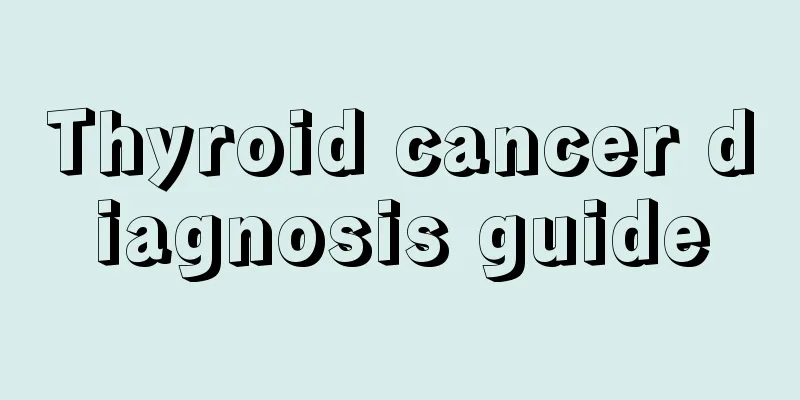Under what circumstances does thyroid cancer require surgery

|
Under what circumstances does thyroid cancer require surgery? Although surgery is the main way to treat cancer diseases such as thyroid cancer, certain factors are still required for surgical treatment of thyroid cancer. So under what circumstances does thyroid cancer require surgery? Let's take a look at the introduction of the article to answer this question. Compared with other malignant tumors, the reoperation rate of thyroid cancer is higher. Usually 30 to 40 percent of thyroid cancer patients will undergo reoperation. There are two reasons for this. One is the recurrence of thyroid cancer; The second is that the first surgical procedure was inappropriate, resulting in residual or suspicious cancer lesions. So, under what circumstances is another surgery necessary? Let’s take a look. 1. Residual primary cancer: Improper first surgical method or insufficient resection may lead to residual primary lesions. Patients who underwent lumpectomy, partial lobectomy, or subtotal lobectomy in the first surgery had a higher residual cancer rate than those who underwent total lobectomy. Therefore, the decision to perform another surgery should be made based on the pathological condition of the tumor at the time of the first surgery, that is, a second surgery should be performed selectively. Patients whose tumor diameter is greater than 4 cm, has invaded the thyroid capsule, or has multiple primary lesions at the time of the first surgery should undergo another surgery. Otherwise, another surgery should not be performed in a hurry, and close follow-up observation can be performed. 2. Residual cervical lymph node metastasis According to statistics, the cervical lymph node metastasis rate of differentiated thyroid cancer is about 60%. If the cervical lymph node dissection is not thorough during the first operation (for example, only enlarged lymph nodes are removed) or the first operation is performed by mistake for a benign disease, it is possible that cervical lymph node metastasis will remain. Indications for additional lymph node dissection in reoperation are: 1. During the first operation, only the enlarged lymph nodes were removed, and postoperative pathology confirmed that the degree of metastasis of the removed lymph nodes was 100%. 2. The tumor diameter is larger than 4 cm at the first surgery, invading the thyroid capsule or extracapsular tissue, and the tumor is poorly differentiated and no neck lymph node dissection has been performed. Because most literature reports that the high-risk factors for thyroid cancer cervical lymph node metastasis are: large tumor diameter, poor differentiation, invasion of the thyroid capsule or extracapsular tissue, obvious clinical symptoms, male sex, and patients over 40 years old. Reoperation for thyroid cancer is difficult and has a high complication rate. Therefore, it is necessary to understand some issues about when thyroid cancer requires reoperation. |
<<: Under what circumstances should thyroid cancer be considered malignant
>>: What is the pathological diagnosis of thyroid cancer
Recommend
Can baby wipes be used to wipe private parts?
We often use wet wipes in our daily life, and mos...
Why does it hurt when I turn and press my wrist?
In real life, wrist pain is very familiar to many...
Is fresh toon poisonous?
Toona sinensis is a wild plant rich in cellulose....
What is medical stone
What is medical stone? Drinking tea is a leisure ...
What are the symptoms of advanced lung cancer? 4 symptoms of advanced lung cancer
Lung cancer is the most common primary lung malig...
Are oranges a hair-raising food?
Oranges are a relatively common fruit, but they a...
Can rubbing your face with onions soaked in vinegar remove spots?
Vinegar can cleanse and rejuvenate the skin, but ...
What fruits can’t be eaten on an empty stomach? 8 kinds of fruits cannot be eaten on an empty stomach
Many people often eat anything when they are hung...
Will muscle building increase weight?
Many people pay more attention to their physical ...
Is it better to take a walk before or after a meal?
Walking is a very effective way to lose weight an...
5 small moves to say goodbye to cold hands and feet
Cold hands and feet are caused by low temperature...
The main causes of tongue cancer in adults
Many people don’t know about tongue cancer. Occas...
Does edible salt have a shelf life?
Every type of food has its own shelf life, but be...
Is surgery necessary for laryngeal cyst
People's bodies are often prone to disease pr...
What is beer made of
Everyone knows that beer has a very low alcohol c...









